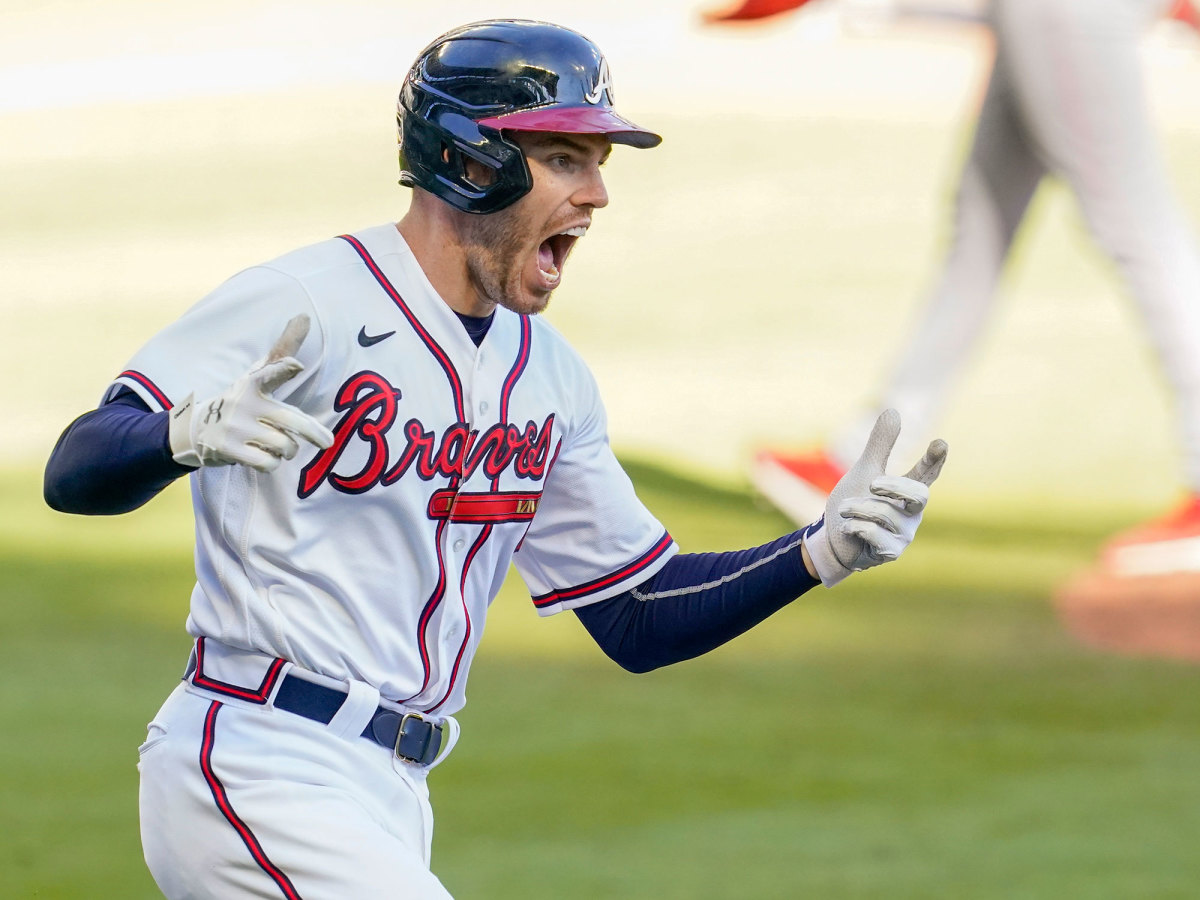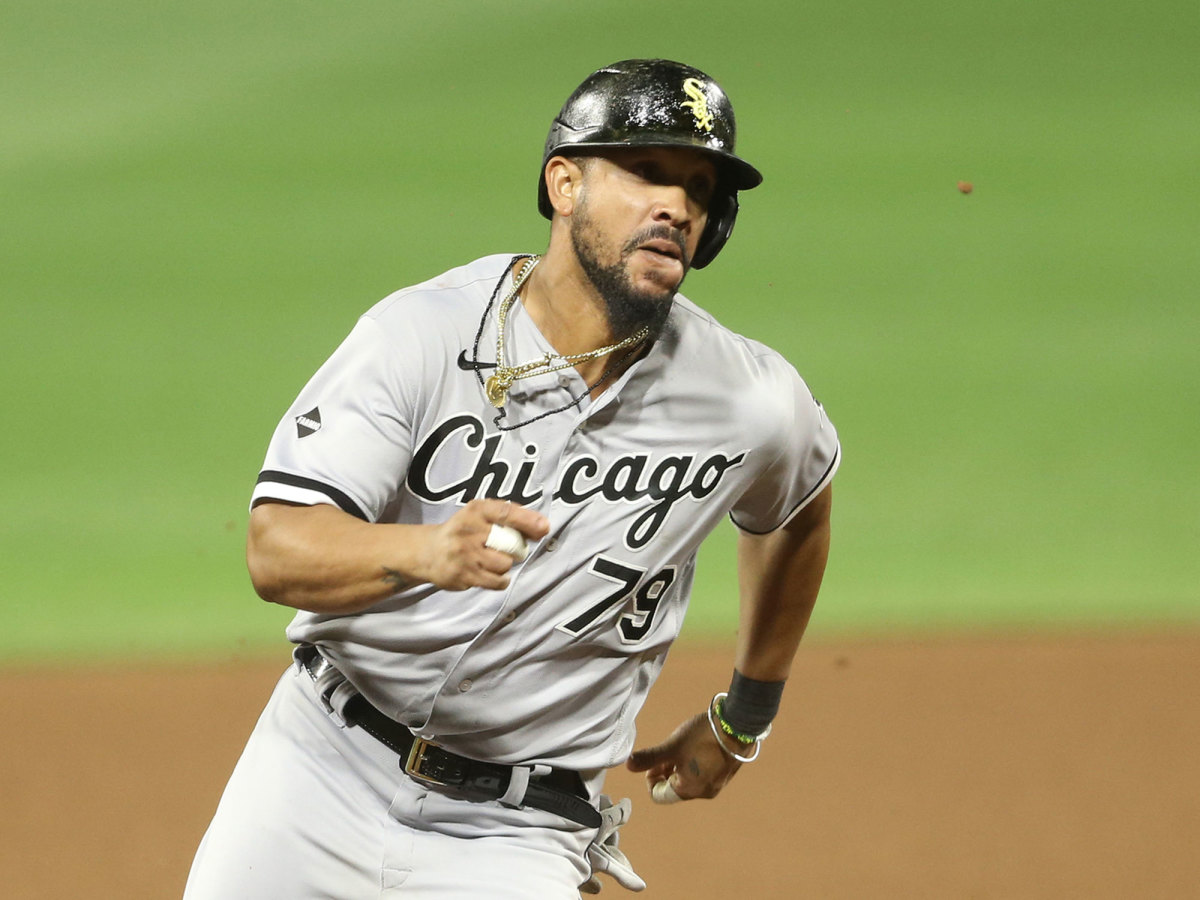MLB MVP Predictions: Can Mookie Betts Make History?
For the first time since 2000, each of the six MVP finalists played for postseason teams. It’s a feat that can be attributed both to the pandemic-shortened season—there weren’t enough games for a player from a non-winning club to put up the gaudy numbers to receive enough votes—and to the expanded playoffs.
This year’s race has a clear frontrunner in both leagues—Braves first baseman Freddie Freeman and White Sox first baseman José Abreu—but no consensus favorites. There is a case to be made for any of the six players to win their league’s award.
Let's break down both MVP races.

National League
Stats in bold indicate National League leader; stats in bold and italics indicate MLB leader.
1. Freddie Freeman, 1B, Atlanta Braves
.341/.462/.640 (262 PA), 13 HR, 51 R, 53 RBI, 2 SB (0 CS), 45 BB, 186 OPS+, 2.9 bWAR
This is the year Freeman finally gets his due. His season began with a positive COVID-19 test, and he was so sick that teammate Nick Markakis initially opted out of the season because he didn’t want to go through what Freeman did. Except, as we know, Freeman recovered and had his best year yet, leading the Braves to within one win of the World Series.
The 30-year-old first baseman led the majors in runs and ranked second behind Juan Soto in slugging percentage and OPS+. He set career highs in batting average, on-base percentage and slugging percentage, while also posting the highest walk rate (17.2%) and lowest strikeout percentage (14.1%) in his career.
After four top-eight finishes in MVP voting, he should finally be topping ballots this year.
2. Mookie Betts, RF, Los Angeles Dodgers
.292/.366/.565 (246 PA), 16 HR, 47 R, 39 RBI, 10 SB (2 CS), 24 BB, 149 OPS+, 3.4 bWAR
Betts could become the second player ever, along with Hall of Famer Frank Robinson, to win the MVP award in both leagues. His postseason accomplishments are not considered for his MVP case, but what we saw from him in October is what he did for L.A. all season. I’d slot Betts behind Freeman if I were voting because of the impact each player had on his team’s regular season. Without Betts, the Dodgers would still win the NL West, just as they had done in the seven years before trading for him. The Braves would not have had the same regular-season success without Freeman.
Still, it’s hard to argue against Betts’s MVP credentials. He is the most complete player in the National League. Every day he makes us wonder again why the heck the Red Sox traded him away.
3. Manny Machado, 3B, San Diego Padres
.304/.370/.580 (254 PA), 16 HR, 44 R, 47 RBI, 6 SB (3 CS), 26 BB, 158 OPS+, 2.8 bWAR
Look, Machado is indisputably one of the best third basemen in baseball—he might even be the best—but he isn’t even the most valuable player on his team. All year, we thought Padres shortstop Fernando Tatis Jr. would either win the NL MVP or be a finalist. A September slump hurt Tatis’s chances, while Machado’s skid came to start the season. The timing of who was hot at what time quite possibly made the difference between which San Diego superstar the voters picked. Comparing the two players doesn’t seem quite right, because without either of them, the Padres would not have reached the postseason for the first time since 2006.

American League
Stats in bold indicate American League leader; stats in bold and italics indicate MLB leader.
1. José Abreu, 1B, Chicago White Sox
.317/.370/.617 (262 PA), 19 HR, 43 R, 60 RBI, 0 SB (0 CS), 18 BB, 166 OPS+, 2.8 bWAR
The best case to be made for Abreu’s MVP candidacy is this: On Aug. 15, the White Sox lost both games of a doubleheader and fell to fourth place in the AL Central. They won the next day, 7–2, and Abreu went 1-for-3 with a solo home run, thus beginning a 22-game hitting streak that lasted through Sept. 9, by which point Chicago was in first.
No first baseman has won the MVP award since Joey Votto in 2010. If both Abreu and Freeman won their respective league’s MVP, this would be the first time a first baseman from each league won the award in the same year since 2006.
2. DJ LeMahieu, 2B, New York Yankees
.364/.421/.590 (216 PA), 10 HR, 41 R, 27 RBI, 3 SB (0 CS), 18 BB, 177 OPS+, 2.8 bWAR
Remember when we doubted whether LeMahieu would be able to hit away from Coors Field? Man, did he prove everyone wrong. He was even better in his second year with the Yankees than he was in his first—when he finished fourth in the MVP voting.
This season, LeMahieu led all of baseball with a .364 average, making him the only player ever to win a batting title in both leagues—unless you count Hall of Famer Ed Delahanty, who initially won the 1902 AL batting title before it was later determined Nap Lajoie had the higher average that season. Though according to the Society for American Baseball Research, Delahanty would have won the title anyway by today’s standards because Lajoie didn’t record enough plate appearances. Delahanty’s NL batting crown came in 1899, so either way, LeMahieu is the first player in the modern era to accomplish the feat in both leagues.
3. José Ramírez, 3B, Cleveland Indians
.292/.386/.607 (254 PA), 17 HR, 45 R, 46 RBI, 10 SB (3 CS), 31 BB, 163 OPS+, 2.2 bWAR
Ramírez’s torrid September propelled him into the MVP race. In that final month, he slashed .366/.453/.841 with 10 home runs and 24 RBIs, providing the Indians with enough thump to reach the postseason, despite their team 86 OPS+, the second-worst mark in the American League. This is the third time in the last four years that Ramírez has been an MVP finalist.
